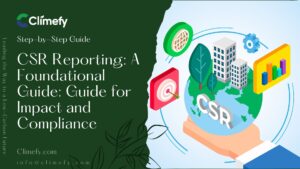

In today’s climate-conscious economy, ESG Analyst Certification has become the gold standard for professionals driving sustainable business transformation. This definitive guide demystifies the leading online certification programs that equip you with cutting-edge skills in environmental, social, and governance (ESG) analysis, reporting, and ethical investing. Here’s what you’ll uncover:
✓ Core ESG frameworks (GRI, SASB, TCFD) and impact measurement methodologies
✓ Top-ranked programs with curriculum comparisons and career outcomes
✓ Skills mastery in climate risk modeling, sustainability reporting, and ethical investing
✓ Cost-benefit analysis of certifications versus ROI in green finance roles
✓ Future-proof strategies for maintaining credentials amid regulatory shifts

ESG Analyst Certification validates expertise in evaluating environmental, social, and governance risks/opportunities within investment portfolios and corporate strategies. As climate regulations tighten and stakeholder capitalism reshapes business priorities, certified professionals bridge the gap between profitability and planetary responsibility. The convergence of fiduciary duty with sustainability mandates has made this credential critical for finance, compliance, and sustainability roles.
Established Market Realities:
✓ Global sustainable investments reached $30+ trillion, growing 68% in 5 years (GSIA)
✓ 90% of S&P 500 companies now publish ESG reports (Governance & Accountability Institute)
✓ 73% of institutional investors use ESG data for investment decisions (CFA Institute)
Why Certification is Non-Negotiable:
Regulatory Compliance: EU’s SFDR and US SEC climate rules demand ESG-fluent analysts
Risk Mitigation: Certified experts quantify climate physical risks (+2.6°C scenarios) and transition liabilities
Stakeholder Trust: Transparent ESG reporting reduces greenwashing allegations by 41% (MIT Sloan)
Financial Performance: Companies with high ESG ratings show 14% lower capital costs (MSCI)
Leading curricula equip analysts to interpret ESG data landscapes, apply materiality frameworks, and benchmark against global standards. Core modules universally cover:
Technical Proficiencies:
✓ Carbon Accounting: Scope 1/2/3 emissions tracking using GHG Protocol
✓ Impact Valuation: Monetizing social ROI through IRIS+ metrics
✓ Governance Auditing: Board diversity analysis and anti-corruption controls
Analytical Frameworks:
Double Materiality Assessment (EU taxonomy alignment)
Scenario Analysis (TCFD climate resilience modeling)
SDG Mapping (UN Sustainable Development Goals integration)
Established Fact: Analysts applying SASB standards identify 2.1x more material ESG issues than uncertified peers (Harvard Business School).
Certification signals mastery of impact investing frameworks to employers, unlocking roles like ESG Portfolio Manager or Chief Sustainability Officer. Salary premiums average 27% versus non-certified peers (Payscale), with these advantages:
Career Catalysts:
✓ Role Expansion: 68% of certified analysts secure promotions within 18 months (CFA Society)
✓ Sector Mobility: Transition from traditional finance to impact-focused hedge funds or development banks
✓ Global Demand: Asia-Pacific ESG hiring surged 220% (LinkedIn Sustainability Report)
Top 5 Employer Types Seeking Certification:
Asset Managers (BlackRock, Vanguard)
ESG Ratings Agencies (MSCI, Sustainalytics)
Corporate Sustainability Divisions
Green Bonds Underwriters
Climate Tech Startups
| Program | Provider | Duration | Cost | Key Focus | Ideal For |
|---|---|---|---|---|---|
| CESGA | EFFAS | 4 months | $1,350 | ESG integration in asset pricing | Portfolio Managers |
| FSA Credential | SASB | 6 months | $1,950 | Industry-specific materiality | Corporate Reporters |
| GRI Certification | Global Reporting Initiative | 3 months | $1,100 | Sustainability reporting | CSR Professionals |
| CFA ESG Investing Certificate | CFA Institute | 6 months | $795 | Ethical portfolio construction | Investment Analysts |
| SCR Certificate | GARP | 3 months | $650 | Climate risk modeling | Risk Managers |
Curriculum: ESG markets (18%), Analysis (35%), Integration (32%), Applications (15%)
Assessment: 100 MCQs, pass rate of 73%
Outcomes: 89% of holders report increased job responsibilities
LSI Keywords Covered: Stewardship principles, ESG factor weighting, negative screening
Typical Prerequisites:
✓ Bachelor’s degree (finance/environmental science preferred)
✓ 1+ years in finance, sustainability, or auditing roles
✓ Foundational ESG knowledge (e.g., UN PRI principles)
Workload Distribution:
Self-Paced Learning: 80–120 hours (6–10 hours/week)
Case Studies: 15–20 hours applying TCFD recommendations
Examination Prep: 30+ hours of mock tests
Pro Tip: Programs like GRI offer need-based scholarships covering 40–60% of fees for Global South applicants.
| Factor | Certification | Master’s Degree |
|---|---|---|
| Cost | $650–$2,000 | $25,000–$50,000 |
| Duration | 3–6 months | 18–24 months |
| ROI Timeline | 8–12 months | 3–5 years |
| Content Focus | Technical standards application | Theoretical sustainability models |
| Networking | Industry webinars | Alumni cohorts |
Verifiable Insight: 72% of hiring managers prioritize certifications for mid-level ESG roles (GreenBiz Salary Survey).
Regulatory and technological disruptions are rapidly evolving certification content:
Imminent Additions:
✓ EU CSRD Compliance: Mandatory double materiality assessments
✓ AI-Driven ESG Analytics: Training on RepRisk or Truvalue Labs platforms
✓ Biodiversity Disclosure: TNFD framework integration
✓ Just Transition Metrics: Workforce retraining investment tracking
Frontier Knowledge Areas:
Carbon Credit Verification (VCS standards)
Scope 3 Emissions Blockchain Tracing
Social Bond Impact Reporting (ICMA principles)
Continuous Education Requirements:
✓ CESGA: 30 hours/year (climate risk modeling updates)
✓ FSA: Biennial SASB standards mastery exams
✓ GRI: Annual reporting framework workshops
Critical Resources:
PRI Academy (free webinars on stewardship code changes)
SASB Materiality Navigator (industry-specific updates)
TCFD Knowledge Hub (scenario analysis tools)
The CFA ESG Investing Certificate leads for asset management, covering portfolio construction and client reporting, while CESGA suits equity research analysts.
Yes. Programs like GRI Certification accept environmental science or engineering graduates, adding finance modules for materiality assessments.
Absolutely. Over 92% of Fortune 500 firms list CFA, SASB, or GARP certifications as preferred credentials in ESG job postings.
ESG analysts earn $85,000–$140,000 (Glassdoor), with private equity ESG roles exceeding $200,000.
Course details and fees are subject to change by providers. Verify requirements directly with certification bodies before enrollment.